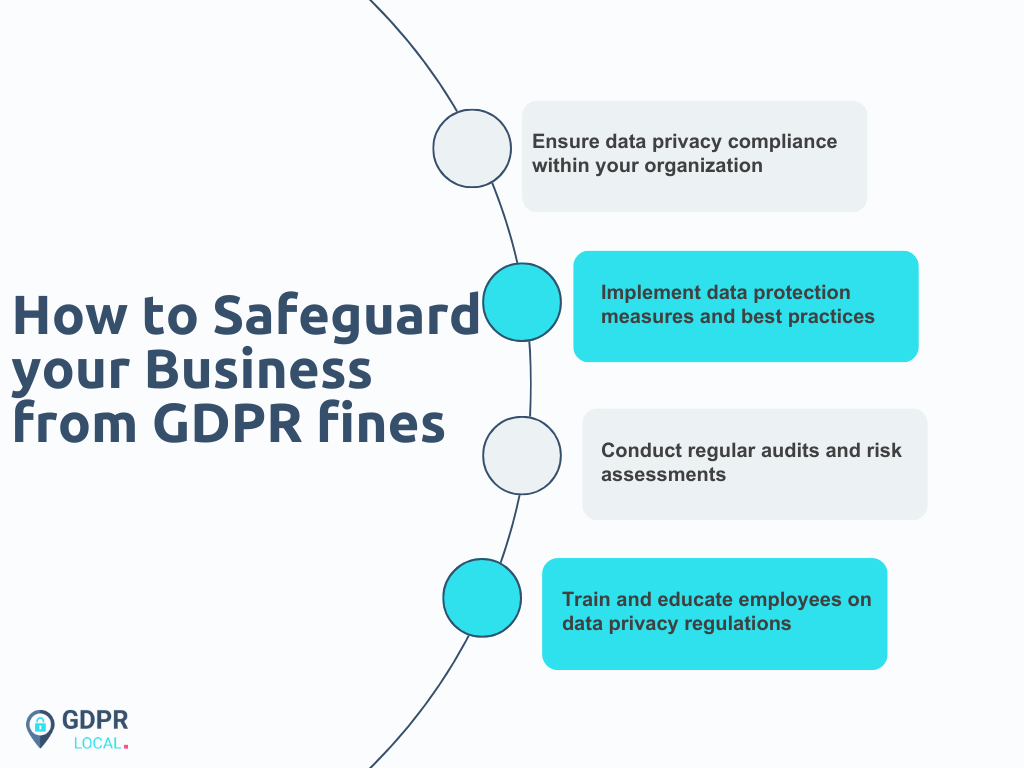
Data Privacy Fines: Proven Strategies to Safeguard Your Business from GDPR Penalties
With the implementation of the General Data Protection Regulation (GDPR), organizations are now more accountable for the privacy and security of the data they collect and process. Failure to comply with GDPR regulations can result in severe penalties and fines. In this article, we will explore the intricacies of data privacy fines and provide proven strategies to safeguard your business from GDPR penalties.
Understanding the General Data Protection Regulation (GDPR)
The General Data Protection Regulation (GDPR) is a comprehensive and far-reaching regulation that was introduced by the European Union (EU) in 2018. Its primary objective is to ensure the protection of personal data and privacy rights of individuals within the EU. The GDPR applies to any organization that handles the personal data of EU citizens, regardless of their location. Therefore, even if your business operates outside the EU, you must comply with GDPR regulations if you process the personal data of EU citizens.
Overview of Data Privacy Fines and Penalties under GDPR
The GDPR has established a tiered approach to fines, with two levels of penalties depending on the severity of the violation. The first level allows for fines of up to €10 million or 2% of the organization’s global annual turnover, whichever is higher. This level applies to less severe violations, such as not having proper data processing documentation or failing to appoint a data protection officer. The second level of fines can reach up to €20 million or 4% of the organization’s global annual turnover, whichever is higher. These fines are imposed for more severe breaches, such as violating the principles of data processing, not obtaining proper consent, or failing to notify authorities of a data breach within the required timeframe.
Common Reasons for GDPR Non-Compliance and Associated Fines
Non-compliance with GDPR can occur due to various reasons, often resulting from a lack of understanding or negligence. Some common reasons for GDPR non-compliance include:
Insufficient data protection measures:
A failure to implement adequate security measures to protect personal data can lead to severe fines. This includes poor encryption practices, weak access controls, or inadequate data storage protocols.
Lack of consent:
GDPR requires explicit and informed consent from individuals for the processing of their personal data. Failing to obtain proper consent or using pre-ticked checkboxes can result in significant fines.
Inadequate data breach response:
In the event of a data breach, organizations must promptly notify the relevant authorities and affected individuals. Failure to do so within the specified timeframe can lead to substantial penalties.

Strategies to Safeguard Your Business from GDPR Penalties
To protect your business from GDPR penalties, it is crucial to adopt proactive measures and implement robust data privacy practices. Here are some proven strategies to consider:
Ensuring data privacy compliance within your organization:
Establish a comprehensive data privacy program that includes policies, procedures, and guidelines for handling personal data. This program should align with GDPR requirements and be regularly reviewed and updated.
Implementing data protection measures and best practices:
Adopt appropriate technical and organizational measures to protect personal data from unauthorized access, loss, or theft. This may include implementing encryption, access controls, and regular backups.
Conducting regular audits and risk assessments:
Regularly review your data processing activities and conduct internal audits to identify any potential vulnerabilities or non-compliance issues. Perform risk assessments to evaluate the impact and likelihood of data breaches.
Training and educating employees on data privacy regulations:
Ensure that all employees are aware of their responsibilities regarding data privacy and GDPR compliance. Provide regular training sessions and educational resources to keep employees informed about best practices and changes in regulations.

The Role of Data Privacy Officers in Minimizing GDPR Fines
Appointing a data privacy officer (DPO) can significantly help in minimizing GDPR fines. A DPO is responsible for overseeing data protection activities within an organization, ensuring compliance with GDPR, and acting as a point of contact for data subjects and regulatory authorities. Their expertise and guidance can help navigate the complex landscape of data privacy, identify potential risks, and implement appropriate measures to mitigate those risks.
Seeking Legal Advice and Staying Updated with GDPR Changes
To stay ahead of data privacy fines and penalties, it is essential to seek legal advice from professionals well-versed in GDPR regulations. They can provide guidance and assistance in interpreting the requirements and ensuring compliance. Additionally, it is crucial to stay updated with any changes or updates to GDPR regulations. Regularly monitor official sources and consult legal experts to ensure your business remains compliant.
Conclusion: Taking Proactive Steps to Protect Your Business from Data Privacy Fines
Protecting your business from data privacy fines requires a proactive and comprehensive approach. By understanding the intricacies of GDPR, implementing robust data protection measures, and staying updated with regulations, you can safeguard your business from penalties and maintain the trust of your customers. Remember, compliance with GDPR is not just a legal obligation but also an opportunity to demonstrate your commitment to data privacy.
Take action now to protect your business and contact GDPRLocal for expert assistance.